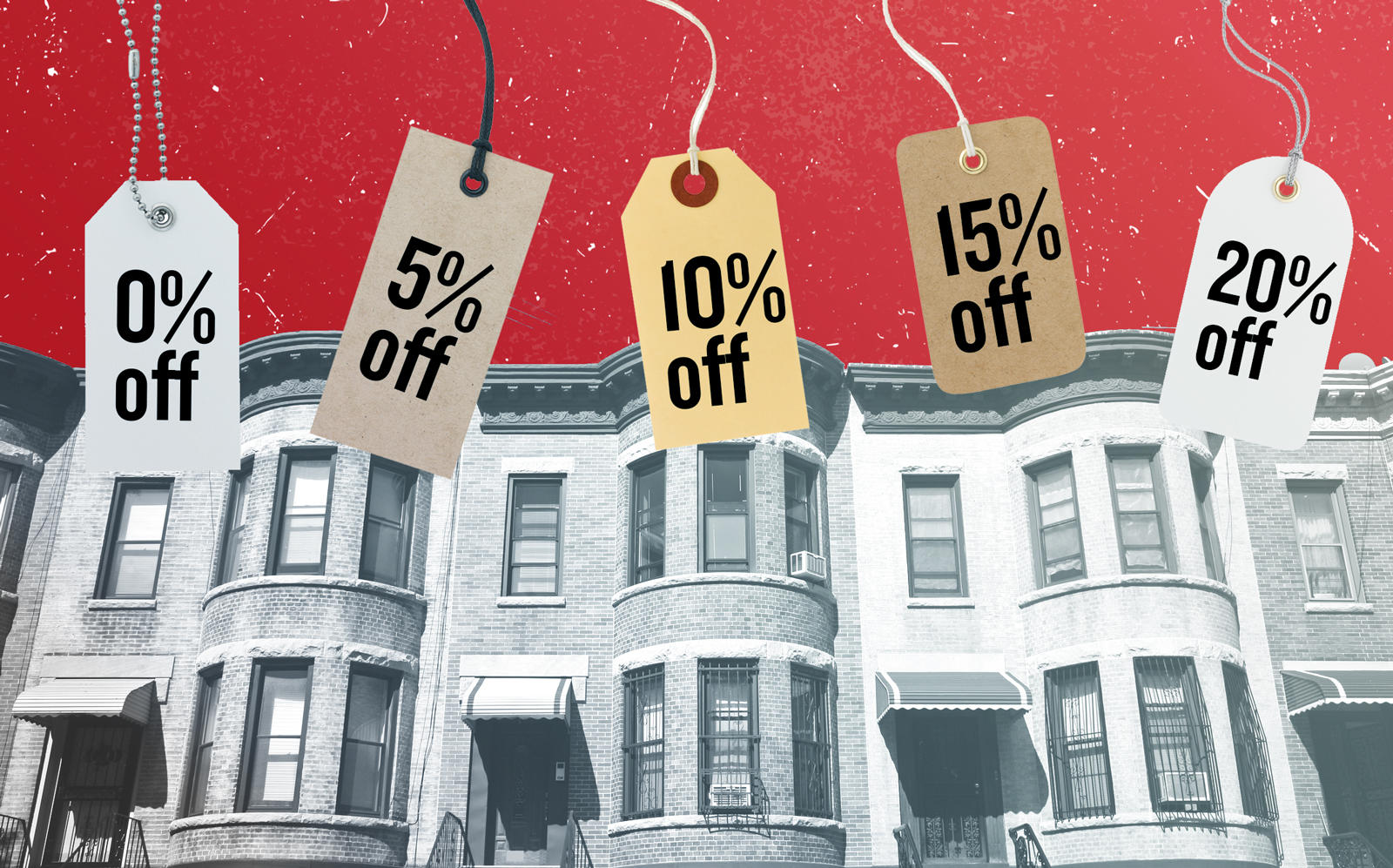Buyers of New York City homes in the midst of a global pandemic are entitled to a discount: The residential sales industry agrees on that.
But the size of that markdown is the subject of heated debate.
Five percent? Ten? Twenty? As the city reopens, everyone in the business has a take on what pandemic pricing is, though comprehensive market data is weeks away.
Read more



Agents working on deals now must walk the fine line between asking for too much or too little, or counseling a buyer on what to offer.
Preliminary data
Halstead broker Fritz Frigan has been surveying city brokers for weeks to gauge price negotiability.
In the 60 replies he’s gathered since May 8, the average difference between the offer price and asking price was 7.7 percent. For accepted offers it was 5.5 percent, and 11 percent for rejected ones.
Five of the participants reported an offer 20 percent or more below the last asking price. One was accepted: Sellers of a Manhattan townhouse asking $14.9 million pursed their lips and accepted $11 million, a 26 percent discount.
Data firm UrbanDigs analyzed about 45 Manhattan deals where the property went into contract and closed during the three-month lockdown that began March 23. It found that the median sale price dropped 15 percent from that of February and pre-lockdown March.
But the sample size was far too small to peg the Covid discount at 15 percent.
“There’s a wide margin of error,” admitted John Walkup, UrbanDigs’ COO and co-founder.
Word on the street
Despite a dearth of market data, some agents say the 15 percent drop UrbanDigs found sounds about right.
“Personally I have negotiated higher-end deals as much as 20 percent off,” said Compass broker Rachel Glazer. “But most sellers won’t take that.”
Developer Ken Horn of Alchemy Properties scoffed at the idea of such a high discount. “We’re not even entertaining or negotiating those deals,” he said.
Corcoran Sunshine Marketing Group’s Kelly Kennedy Mack echoed the sentiment.
“If you had to answer, the Covid discount to date has only proven to be 4 percent,” she said, during a TRD Talks Live segment last week. “It’s far from the 20-something that some people expect when they walk in.”
Glazer advises buyers seeking a bargain to make offers on multiple properties and then be patient enough to wait until one seller says yes.
Glazer said those buyers will walk if they don’t get a price they deem low enough, regardless of how much they love the property.
“If they don’t get their number, they’ll just rent,” she said. “Nobody is going to overpay right now.”
Douglas Elliman’s chairman Howard Lorder said on CNBC’s “Squawk Box” that he believes Covid-19 will depress prices.
“From the peak, they’re probably down 10 percent already before Covid, maybe a little bit more on certain apartments. Maybe 15,” he said to host Andrew Ross Sorkin. “And maybe they’ll go a little bit lower, but, look, the city is the city.”
The consensus among other brokerage leaders is that the Covid break is between 5 percent and 10 percent, though Warburg Realty’s Frederick Peters admitted that, for now, it’s pure guesswork.
“There are no indicators. How could there be indicators? There have been no showings for three months,” he said.
“I’m advising my agents that they should probably price between 5 and 10 percent below pre-Covid prices, but some agree with that and some don’t,” Peters continued. “And I’m not in a position to tell the ones that don’t agree that they’re wrong, because we just don’t know yet.”
Write to Erin Hudson at ekh@therealdeal.com
